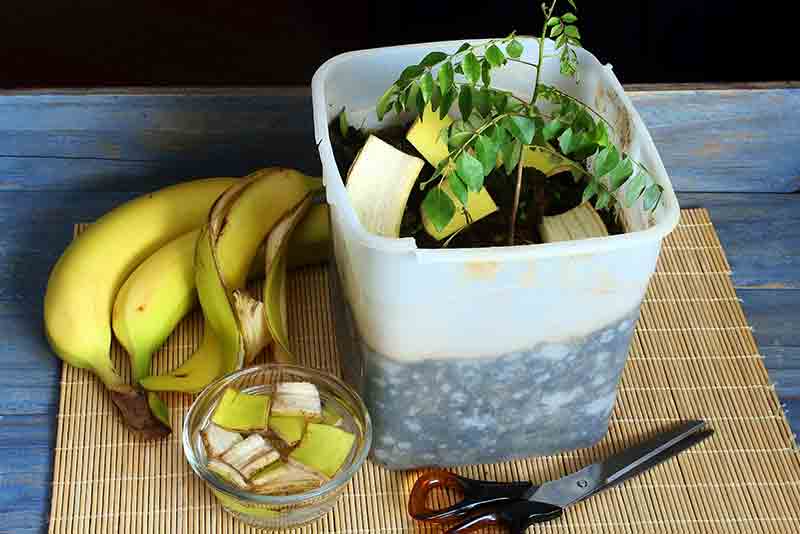Healthy and thriving plants are the pride of any gardener. One of the key factors in achieving vibrant plant growth is providing them with proper nourishment. While commercial fertilizers are readily available, many gardeners prefer using homemade plant fertilizers due to their natural composition and cost-effectiveness. In this article, we will explore the world of DIY plant fertilizers, discussing their benefits, different recipes, application methods, and essential tips to help your plants flourish naturally.
Understanding the Importance of Homemade Plant Fertilizers
Plants rely on essential nutrients to grow, develop, and produce vibrant blooms or bountiful harvests. Fertilizers play a vital role in supplying these nutrients, ensuring healthy plant growth. By using natural fertilizers for plants, you avoid the use of synthetic chemicals that can harm both the environment and your plants. Natural fertilizers for plants are often made from organic materials, such as kitchen scraps, natural minerals, or compost, providing a balanced and sustainable approach to nourishing your plants.
Benefits of Using Natural Fertilizers for Plants
Using natural fertilizers for your plants offers several benefits:
- Environmental friendliness: Natural plant fertilizers are derived from organic sources, minimising the release of harmful chemicals into the environment and promoting eco-friendly gardening practices.
- Cost-effectiveness: Many natural plant fertilizers can be made using readily available materials, reducing the need to purchase expensive commercial fertilizers.
- Improved soil health: Natural fertilizers enrich the soil with organic matter, enhancing its structure, water retention capacity, and microbial activity. This leads to healthier soil and improved plant growth.
- Balanced nutrition: Organic plant fertilizers provide a diverse range of nutrients in balanced proportions, supporting optimal plant development and preventing nutrient imbalances.
- Sustainable gardening: By creating your own plant fertilizers, you contribute to sustainable gardening practices, reducing waste and promoting self-sufficiency.
DIY Plant Fertilizers: Simple and Effective Recipes
1. Banana Peel fertilizer

Banana peels are rich in potassium, an essential nutrient for flowering and fruiting plants, which makes them ideal organic fertilizers. To create a banana peel fertilizer, chop or blend banana peels and bury them around the base of plants or use them to make a nutrient-rich tea for watering. The quantity depends on the uses and intent.
2. Eggshell Tea fertilizer

Eggshells are an excellent source of calcium, which promotes strong cell walls in plants. Crush clean, dried eggshells and steep them in water for several days to create an eggshell tea. You can use eggshells as per your convenience. Use the strained tea to water plants or as a DIY plant fertilizer spray.
3. Epsom Salt fertilizer
Epsom salt, or magnesium sulphate, is beneficial for plants requiring magnesium, such as tomatoes and roses. Dissolve 1 tablespoon Epsom salt in 3.8 litre water according to package instructions and apply it to the soil or spray it on plant foliage.
4. Coffee Grounds fertilizer

Coffee grounds can be an excellent homemade fertilizer for indoor plants. They are a fantastic source of nitrogen, phosphorus, and other trace minerals. Mix coffee grounds with compost or sprinkle them around the base of plants. Avoid using excessive amounts, as coffee grounds can increase soil acidity.
5. Seaweed Extract fertilizer
Seaweed is rich in micronutrients, growth-promoting hormones, and beneficial enzymes. Collect seaweed from beaches or purchase dried seaweed. Steep it in water for a few days to create a nutrient-rich seaweed extract. Dilute the extract and use it to water plants or as a foliar spray.
6. Compost Plant fertilizer

Compost is often referred to as “black gold” for gardeners. It is a nutrient-rich organic matter that can be used as homemade khad for plants or a top dressing for plants. Create your own compost by combining kitchen scraps, yard trimmings, and dry leaves in a compost bin. Turn the pile regularly to facilitate decomposition, and in a few months, you’ll have rich, dark compost to feed your plants.
Application Tips for Organic Plant fertilizers
To ensure the best results when using fertilizers, consider the following tips:
- Proper dilution: Follow the recommended dilution ratios for each homemade fertilizer recipe to avoid over- or under-fertilising your plants.
- Timing: Apply fertilizers during the active growing season when plants have a higher demand for nutrients.
- Balanced approach: Rotate the use of different homemade fertilizers to provide a variety of nutrients and prevent nutrient imbalances.
- Avoid foliage contact: When applying fertilizers, avoid direct contact with the leaves to prevent leaf burn or damage.
- Monitor plant response: Observe your plants’ response to the fertilizers and make adjustments as needed based on their growth and overall health.
- Avoid Excess: It’s important to follow the recommended application rates, avoid excessive use.
- Soil test: conduct a soil test to prevent nutrient imbalances. Additionally, ensure the quality and safety of the ingredients used in homemade fertilizers.
Frequently Asked Questions (FAQs)
Conclusion
Homemade plant fertilizers provide a natural and sustainable way to nourish your plants, promoting healthy growth and abundant blooms or harvests Now that you know how to make natural fertilizer. By utilising simple DIY recipes and natural ingredients, you can create nutrient-rich fertilizers that are not only effective but also environmentally friendly. Experiment with different homemade fertilizers and observe the positive impact they have on your plants. Embrace the joy of nurturing your garden with DIY plant fertilizer spray and watch your plants

Mrs. Pushpa Khurana is a remarkable academic and culinary expert who has excelled in both education and cooking. Her academic Read more

